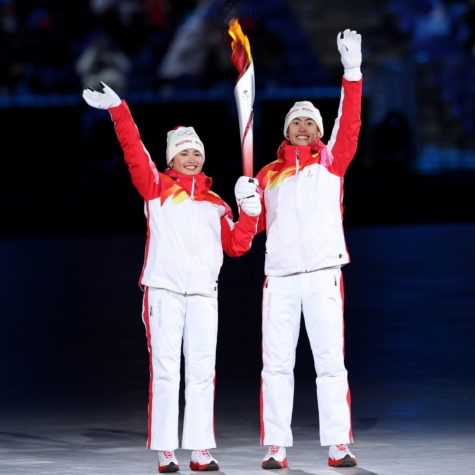Beijing 2022: The Politic Games
This year’s Winter Olympics are being hosted in Beijing, China. Globally, millions of enthusiasts and casual viewers alike are prepared to be enthralled by showstopping feats of athleticism and sportsmanship. Since 1924, the Winter Games have incontestably been a time for athletes to demonstrate their physical prowess and scintillating skill on a global stage. In games past, athletes have always been the sole and indisputable stars of the Olympics. So why are politicians getting involved?
The Stirring of Scandal
The Olympic games of 2022 are set to commence in the midst of human-rights violation drama with the Chinese government. These accusations paint China as an oppressor of the Uyghur people: an ethnic minority in Xinjiang, China. In the past, human rights activists have accused the Chinese government of orchestrating a series of human rights violations against the Uyghurs. Advocates are pushing for accountability on China’s part for the mass detention and forced re-education of countless Uyghur ethnic minorities.
In the United States of America, China’s ethnic-assimilation campaign against Muslim Uyghurs has even been declared as genocidal. Subsequently, the US and nine other countries are carrying out a diplomatic boycott of the games; it is a refusal to stand with “the PRC’s ongoing genocide and crimes against humanity in Xinjiang and other human rights abuses,” as explained by White House press secretary Jen Psaki. This diplomatic boycott means that though American athletes are free to participate in the games, America will not be sending any diplomats to Beijing.
China has already issued a response to foreign criticism, denying any involvement in such transgressions and describing its actions as a necessary safeguard against terrorism. Now, China has elevated its response to the global stage of the Winter Games.
China’s Response
On February 4th, during the opening ceremony of the Beijing Olympics, a Chinese athlete made waves for carrying the Olympic flame. It wasn’t a matter of her conduct, but rather of her identity.
Dinigeer Yilamujiang, a skier of Uyghur descent, carried the Olympic torch along with Zhao Jiawen, an athlete of China’s Han ethnicity. Smiles on faces, palms facing towards the crowd, the two were a singular unit as they settled the Olympic torch into its roost.

But what was supposed to be a symbol for national unity only sparked further controversy among humanitarians. While some view it as a step in the right direction, others remain unimpressed. Human rights lawyer Teng Biao views this “unifying” gesture as a facade to “turn the sports arena into a stage for political legitimacy and a tool to whitewash all those atrocities [in Xinjiang].”
Controversy Ensues
International viewers of the games have also expressed doubts about the legitimacy of China’s decision to make Yilamujiang the torchbearer. Typically, it is an honor reserved only for the most accomplished and decorated of athletes. Ms. Yilamujiang, at 20 years old, is just making her Olympic debut in the 2022 games — she was virtually unknown prior to the opening ceremony that catapulted her into stardom.
And like a star, she encountered an explosive end. Barely 15 hours after the opening ceremony began, she finished a disappointing 43rd in her skiing event and promptly vanished from the public eye.
Her disappearance is a reminder of the tenuous line between politics and athletics that China treads this Winter Games. It is up to China now whether or not to put this delicate balance in jeopardy.

